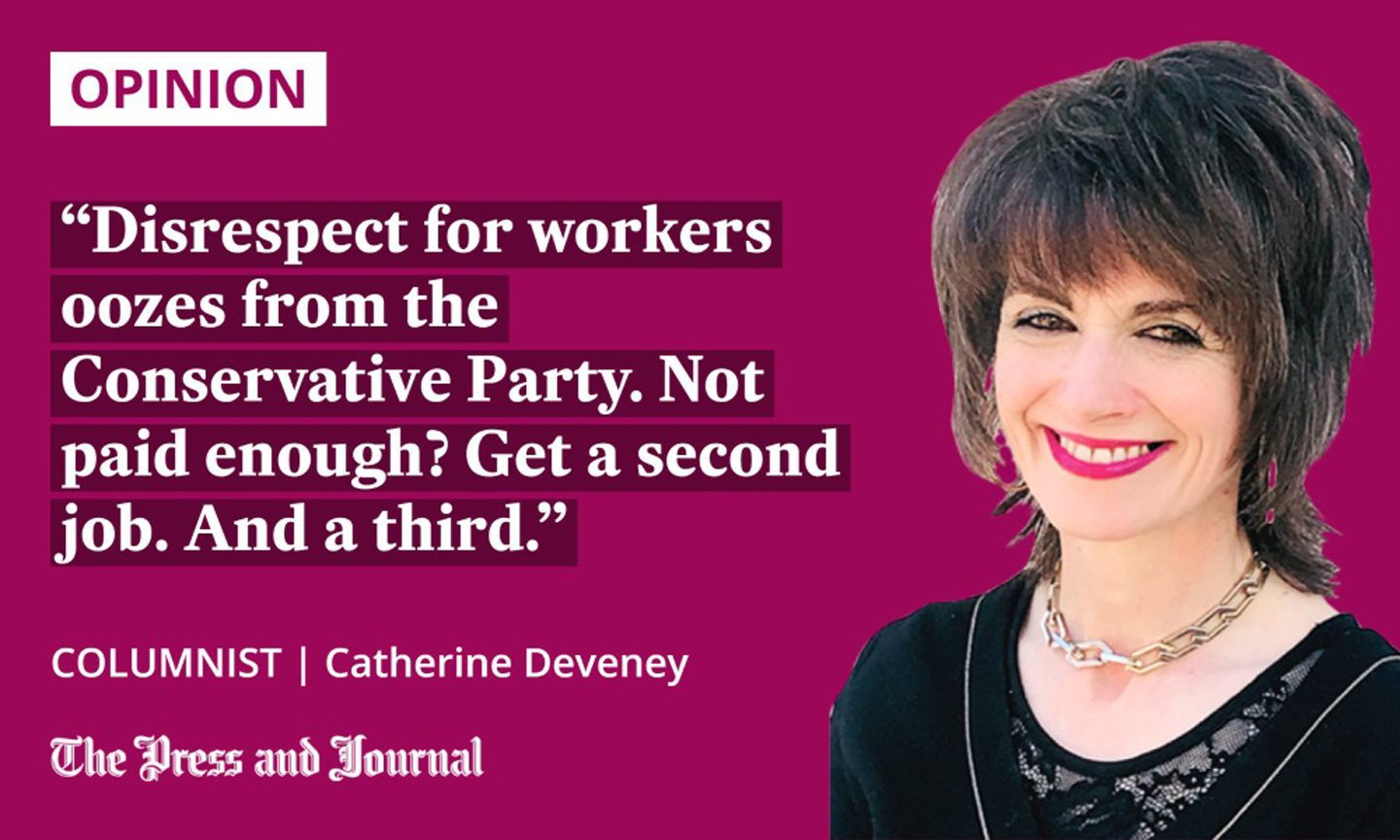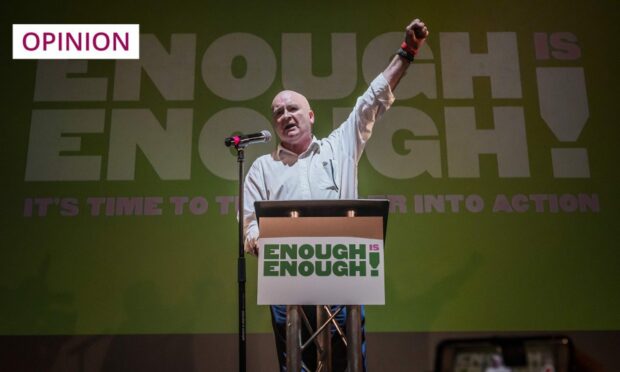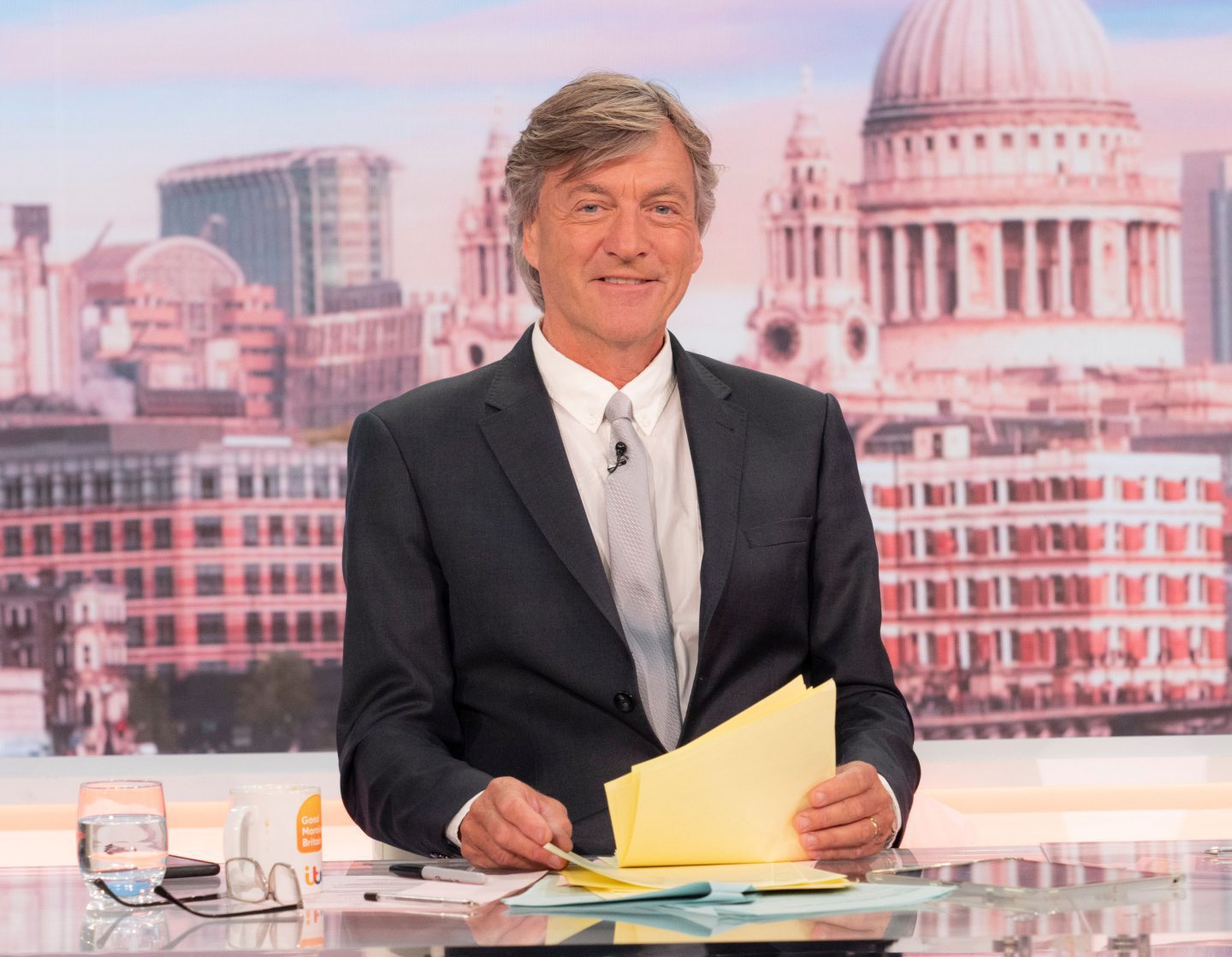Asking those of us with no say whatsoever in the impending Downing Street coronation (in other words, the majority of the nation) whether we would prefer Truss or Sunak is the kind of hypothetical non-question so beloved of student gatherings involving too much booze and a Domino’s pizza.
You must face death. (But I don’t want to…) No, listen, would you prefer to a) fight your way out of a wire cage by wrestling a starving tiger, or b) be pushed from a clifftop and see if you land on the rock or the water? (Neither.) Choose! (OK… ehm, maybe b?) Really? Oh my God, you’re dead meat. (A then.) You’re dead anyway…
Cute as the phrase “cost of living crisis” is, with its neat headline alliteration, it comes nowhere near capturing the scale of bitter division, social alienation and depressing disruption ahead of us in Britain this winter.

The Truss and Sunak show is a pointless distraction – a rock and a hard place. Though, granted, there’s a kind of fatal fascination – limited entertainment value, even – in the way Liz Truss manages to make a multimillionaire in a Gucci suit look like a militant socialist.
As they each prove their inability to connect to the reality of people’s lives, leadership charisma is coming from an unlikely source: a bald, 60-year-old, trade union leader, who wears suits that I think we can say, without fear of contradiction, are definitely not Gucci.
When was the last time a trade union leader in Britain was viewed as socially acceptable? But Mick Lynch, general secretary of the RMT, has captured the zeitgeist, captivating a youthful audience who have never, until now, understood the need for a union membership card.
Employees are recalibrating the scales of power
Last week, Lynch received rapturous applause at a Glasgow rally for the newly formed, Enough is Enough campaign. His message was uncompromising: this is a class war.
His words have resonated more strongly with voters than tax cuts for the rich. “The working class is back,” Lynch said. “We refuse to be meek, we refuse to be humble. We refuse to wait for politicians and policy-writers – and we refuse to be poor anymore.”
The rumblings of discontent are gaining the momentum of a snowball rolling downhill
While the last 30 years of post-Thatcher social history in Britain has tried to reinforce the notion that worker organisation is unnecessary, that even the term “working class” is an anachronistic irrelevance, Mick Lynch has successfully ripped open a seam that was tacked up for show only.
The prospect of strikes is deeply depressing for everyone – not least workers who are losing pay – but there is an important social shift here. Employees are finally recalibrating the scales of power.
"The working class is back".
Mick Lynch at last night's #EnoughIsEnough rally. pic.twitter.com/mfYddY6rDq
— Novara Media (@novaramedia) August 18, 2022
Disrespect for workers oozes from the Conservative Party. Not paid enough? Get a second job. And a third.
In 2012, five Tory MPs wrote a book, Britannia Unchained, which said that British workers were “among the worst idlers in the world”. The authors? Dominic Raab. Kwasi Kwarteng. Priti Patel. Chris Skidmore. And, of course, Truss, who says she will pass laws restricting trade union activity within 30 days of taking office.
Tell that to the RMT, and the refuse collectors, and the bus drivers, and the dockers, and to all the corners of British industry where the rumblings of discontent are gaining the momentum of a snowball rolling downhill. Tell it to the English barristers, whose strike action is said to be making the wheels of justice grind to a halt. Which might be true, if the wheels of justice had actually been moving in the first place, instead of spinning aimlessly in a broken system.
Politicians are servants of the people – not the other way around
I’m not sure what century Truss thinks she is living in – one with serfs, I imagine – but her get-tough-with-the workers rhetoric is unlikely to work. Mick Lynch has reintroduced the idea that politicians are the servants of the people, not people of the politicians.
He has also challenged – with humour – the sneers of those who think “working class” means a subnormal IQ. They don’t imagine, Lynch says, that people like him might actually have read anything in their own time. Yet, seasoned interviewers Piers Morgan, Kay Burley, and Richard Madeley have all faced humiliation interviewing Lynch.
“Are you a Marxist?” Madeley asked, with characteristic, eager-beaver bluster, “Because, you know, that would mean you are for revolution.” The answer was no. Still, how helpful of Madeley to provide a definition. Shame it was mince.
Earlier this year, ex-Tory prime minister, John Major, gave a keynote speech at the Institute for Government. “We take democracy for granted,” he said. “We should not.”
If Liz Truss is elected, as current polls suggest, she would do well to realise that democracy is not sitting on the lid of public feeling. It’s not denigrating working people for “lacking graft”.
The entire Tory party can sit down hard on Pandora’s box if they want, but nothing will stop that lid blowing open this winter – whether we face the tiger or the clifftop.
Catherine Deveney is an award-winning investigative journalist, novelist and television presenter


Conversation